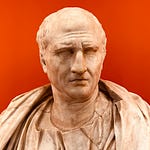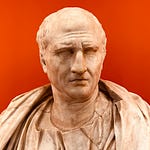“[Socrates] First of all, then, let’s try to say what bravery is, Laches; and after that we’ll investigate any ways of adding it to young men, in so far as it may be possible to do so by means of various activities and disciplines. So, as I say, try to put into words what bravery is.
[Laches] My word, Socrates, that’s not difficult! If a man is prepared to stand in the ranks, face up to the enemy and not run away, you can be sure that he’s brave. …
[Socrates] But what about another man, a man who still fights the enemy, but runs away and doesn’t make a stand?
[Laches] How do you mean, ‘runs away’?
[Socrates] Well, I suppose just like the Scythians are said to fight every bit as much in retreat as in pursuit. …
[Laches] Your point about the Scythians applies to cavalry – that’s the way cavalry go into action, but infantry operate as I described.
[Socrates] With the possible exception, Laches, of the Spartan infantry. At the battle of Plataea, so the story goes, the Spartans came up against the troops with wicker shields, but weren’t willing to stand and fight, and fell back. The Persians broke ranks in pursuit; but then the Spartans wheeled round fighting like cavalry and so won that part of the battle.
[Laches] That’s true.
[Socrates] Well, this is what I meant just now when I said it was my fault you didn’t give a proper answer, because I didn’t phrase the question properly; you see, I wanted to find out not just what it is to be brave as an infantryman, but also as a cavalryman, and as any kind of member of the forces; and not just what it is to be brave during a war, but to be brave in the face of danger at sea; and I wanted to find out what it is to be brave in the face of an illness, in the face of poverty, and in public life; and what’s more not just what it is to be brave in resisting pain or fear, but also in putting up stern opposition to temptation and indulgence – because I’m assuming, Laches, that there are people who are brave in all these situations.
[Laches] Very much so, Socrates.
[Socrates] … So try again, and tell me with respect to bravery first of all what the constant factor in all these situations is – or do you still not understand what I mean?” (Laches, 190d-191d)
Listen to this episode with a 7-day free trial
Subscribe to Figs in Winter: New Stoicism and Beyond to listen to this post and get 7 days of free access to the full post archives.












